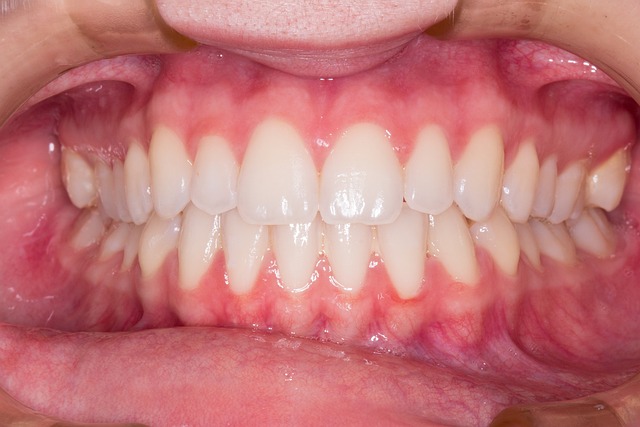Understanding Dental Implant Procedures and Options
Dental implants have become a reliable solution for replacing missing teeth, offering both functional and aesthetic benefits. Whether you're considering traditional implants or exploring same-day options, understanding the procedure, timeline, and associated costs can help you make an informed decision about your oral health.

Missing teeth can affect more than just your smile—they can impact your ability to eat comfortably, speak clearly, and maintain overall oral health. Dental implants have emerged as a popular and effective solution for tooth replacement, providing a permanent alternative to dentures or bridges. These titanium posts are surgically placed into the jawbone, where they fuse with the bone tissue to create a stable foundation for artificial teeth. The result is a natural-looking and functional replacement that can last for decades with proper care.
What Is the Dental Implant Procedure?
The dental implant procedure typically involves several stages spread over multiple months. During the initial consultation, your dentist or oral surgeon will evaluate your oral health, take X-rays or CT scans, and develop a personalized treatment plan. The first surgical phase involves placing the titanium implant post into the jawbone beneath the gum tissue. This post acts as an artificial tooth root. After placement, a healing period of three to six months is usually required for osseointegration—the process where the implant fuses with the surrounding bone. Once healing is complete, an abutment is attached to the implant, which serves as a connector between the implant and the crown. Finally, a custom-made crown is placed on the abutment, completing the restoration. Throughout this process, patients may receive temporary teeth to maintain appearance and function.
Are Same Day Dental Implants a Viable Option?
Same day dental implants, also known as immediate load implants, allow patients to receive both the implant and a temporary crown during a single appointment. This approach is particularly appealing for those who want to avoid the extended timeline of traditional implants. However, not everyone is a candidate for same day dental implants. Success depends on factors such as bone density, overall oral health, and the location of the missing tooth. The procedure begins with the surgical placement of the implant, followed immediately by the attachment of a temporary crown. While this crown is functional, it’s designed to bear less pressure than a permanent crown. After the healing period, the temporary crown is replaced with a permanent one. Same day dental implants can significantly reduce treatment time and eliminate the need for multiple surgical appointments, though they may carry a slightly higher risk of complications if proper healing conditions aren’t met.
How Do Different Providers Compare for Dental Implants?
When considering dental implants, it’s important to research providers and understand the range of services and costs available. The following table provides a general comparison of dental implant providers based on typical offerings. Keep in mind that individual experiences and costs may vary based on location, complexity of the case, and specific provider policies.
| Provider Type | Services Offered | Cost Estimation |
|---|---|---|
| Private Dental Practices | Comprehensive implant services, personalized care, flexible scheduling | $3,000 - $6,000 per implant |
| Dental Schools | Supervised student-performed procedures, lower costs, educational setting | $1,500 - $3,500 per implant |
| Corporate Dental Chains | Standardized procedures, multiple locations, financing options | $2,500 - $5,000 per implant |
| Specialty Oral Surgery Centers | Advanced surgical expertise, complex cases, sedation options | $3,500 - $7,000 per implant |
| Community Health Clinics | Income-based pricing, basic implant services, limited availability | $1,000 - $3,000 per implant |
Prices, rates, or cost estimates mentioned in this article are based on the latest available information but may change over time. Independent research is advised before making financial decisions.
What Factors Influence Dental Implant Costs?
Several variables affect the overall cost of dental implants. The number of implants needed is a primary factor—replacing a single tooth costs significantly less than full-mouth restoration. Geographic location also plays a role, with urban areas typically charging higher fees than rural regions. The expertise and credentials of the dental professional can influence pricing, as specialists with advanced training may charge premium rates. Additional procedures such as bone grafting, sinus lifts, or tooth extractions add to the total expense. The type of implant material and crown selected also impacts cost, with premium materials commanding higher prices. Many dental insurance plans provide partial coverage for implants, particularly when they’re deemed medically necessary. Flexible financing options and payment plans are often available through dental offices to make treatment more accessible.
What Should You Expect During Recovery?
Recovery from dental implant surgery varies depending on the complexity of the procedure and individual healing capacity. Immediately following surgery, patients may experience swelling, bruising, minor bleeding, and discomfort at the implant site. These symptoms typically subside within a few days to a week. Pain management usually involves over-the-counter medications, though prescription pain relievers may be provided for more extensive procedures. A soft food diet is recommended during the initial healing phase to avoid placing excessive pressure on the implant site. Good oral hygiene is essential, though patients should be gentle around the surgical area. Regular follow-up appointments allow the dental professional to monitor healing progress and address any concerns. Most patients can return to normal activities within a few days, though strenuous exercise should be avoided for at least a week.
How Can You Maintain Your Dental Implants?
Proper maintenance is crucial for the long-term success of dental implants. Daily brushing and flossing remain essential, with special attention to the areas around the implant. Interdental brushes or water flossers can help clean hard-to-reach spaces. Regular dental checkups and professional cleanings every six months allow your dentist to assess the health of your implants and surrounding tissues. Avoiding harmful habits such as smoking, which can interfere with healing and increase the risk of implant failure, is important. Similarly, refraining from chewing hard objects or using teeth as tools helps prevent damage to the crown or implant. With proper care, dental implants can last 20 years or longer, making them a worthwhile investment in your oral health.
Dental implants represent a significant advancement in restorative dentistry, offering a durable and natural-looking solution for missing teeth. Whether you opt for the traditional multi-stage approach or explore same day options, understanding the procedure, costs, and maintenance requirements empowers you to make the best choice for your individual needs. Consulting with qualified dental professionals in your area will provide personalized guidance tailored to your specific situation.
This article is for informational purposes only and should not be considered medical advice. Please consult a qualified healthcare professional for personalized guidance and treatment.




